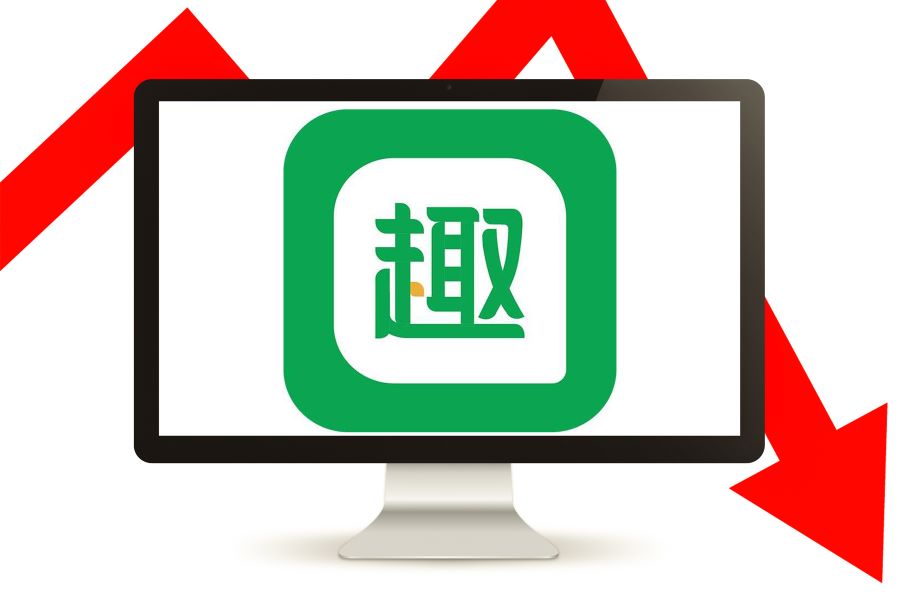‘Fun’ Drops Out of No. 2 News Aggregator Qutoutiao

Company, whose name means ‘fun headlines,’ discloses it may be unable to repay a $171 million loan coming due early next year
Key Takeaways:
- Controlling cashflow will be crucial for Qutoutiao in coming months as it worries over its ability to repay a $171 million loan coming due early next year
- Company’s big user base in smaller Chinese cities could make it an attractive takeover target
By Alice Leung
Its name means “fun headlines,” but investors in Qutoutiao Inc. (Nasdaq: QTT) haven’t found much fun in this news and video aggregator’s stock lately. The Shanghai-based company’s shares have lost more than two-thirds of their value since their listing on the Nasdaq about three years ago.
The loss-making company pays for its subscribers, giving it a high cash burn rate. And after multiple rounds of fundraising, Qutoutiao currently has negative equity and a $171 million convertible loan maturing early next year.
Such an amount would normally be peanuts for most companies of Qutoutiao’s size. But Qutoutiao quietly buried the significance of the loan near the bottom of its latest quarterly report released last week, saying it may not be able to honor the debt.
“There is uncertainty regarding the company’s ability to repay the convertible loan upon maturity, which raises substantial doubt about the company’s ability to continue as a going concern,” Qutoutiao said.
For anyone who doesn’t follow these things that closely, “doubt about a company’s ability to continue as a going concern” is standard industry jargon for saying a company is in danger of potential collapse. While many companies that use the phrase often survive, every now and again one does actually collapse.
The convertible loan in question was provided by Alibaba in March 2019. At the time, the e-commerce giant saw the loan as a strategic move due to its option to convert the amount into about 11.4 million Qutoutiao American depositary shares (ADSs) at $15 apiece, equal to about 4% of the company.
Despite a 12% jump in Qutoutiao’s stock on Wednesday, the loan’s conversion price is still about seven times Qutoutiao’s last close of $2.14. That means it’s highly unlikely Alibaba will want to exercise its conversion right, and instead will simply demand repayment of the funds.
The development continues the recent ongoing downward spiral for Qutoutiao. The company is China’s second largest news aggregator, which perhaps is how it attracted Tencent, China’s other internet giant, as a backer.
But that No. 2 status is misleading, as Qutoutiao is really a distant second and rapidly losing ground to the wildly popular Jinri Toutiao, a behemoth owned internet giant ByteDance. As Qutoutiao slips into cash conservation mode, its fate could depend on its cash flow in the year ahead.
In one of the latest in its string of post-IPO financings, its subsidiary Midu Novels, a free novel platform, raised over $110 million in March this year following a $100 million round in October 2019. Qutoutiao itself sold more than 17 million ADSs in its 2018 IPO and a subsequent share sale in 2019, raising nearly $130 million in total.
But the constant cash injections have been unable to fill the ever-growing hole in Qutoutiao’s finances, which included a deficit in shareholder equity at the end of 2020. Even if it survives its current cash crunch, investors will have to wait at least one more year and possibly longer before the company breaks even in 2022 or 2023, based on the forecasts of three analysts.
Takeover Target?
Its current state of uncertainty could make Qutoutiao a takeover target, as the company is quite affordable with a current market value of just $627 million. Its 125 million monthly active users could also appeal to the right buyer. Domestic technology giants like Alibaba, Pinduoduo, Sina and NetEase could easily afford such a purchase, using such a mobile news app to complement their existing businesses.
Such takeover rumors bubbled up as recently as last December, though Qutoutiao denied them.
Founded by chairman and CEO Eric Siliang Tan in 2016, the content aggregator focuses on consumers in China’s smaller, less affluent cities that are often overlooked by bigger, more established internet names. A similar strategy is used by e-commerce company Pinduoduo and video streamer Kauishou.
Qutoutiao was one of China’s youngest firms to list in the U.S. at the time of its September 2018 IPO, with an operating record of just about 27 months at the time. The stock more than doubled from its IPO price of $7 in its debut.
But its strong revenue growth rate started to slow, and Qutoutiao’s revenues began contracting in the last year’s third quarter. The figure fell nearly 9% to 1.29 billion yuan ($202 million) in the first quarter of 2021, and it expects it to fall by a similar amount in the current quarter, according to its latest report.
As its cash pile shrivels, the company has been trying to maintain a balance between growth and profitability rather than just seeking user growth. That has helped to stem its losses, though the company continues to lose money.
It lost 149 million yuan in this year’s first quarter, far less than its 531.8 million yuan loss a year earlier. Its latest quarterly user acquisition expenses rose 17.3% year-on-year on its growing investment in Midu Novel and the development of new applications. But user engagement expenses fell by a sizable 64.7% to 179.1 million yuan.
Its business model of paying to lure new users and giving away cash credit to boost reader engagement has been easily copied, and the company’s chairman has cited irrational competition from imitators as a factor undermining Qutaotiao’s business.
Its sinking position attracted a short-seller attack by Wolfpack Research in December 2019, which the company survived. But the departure of CFO Wang Jingbo and chief strategy officer Oliver Chen Yucheng in the subsequent two months did little to boost investor confidence.
Qutoutiao took another hit last July when state-run national broadcaster China Central Television (CCTV) accused it of selling misleading ads, dealing a blow to the company’s main revenue source accounting for more than 90% of its total.
After its strong start post-IPO, the company’s stock has move steadily down and traded below its IPO price since May 2019. It briefly rallied in February as its shares became popular with speculators during a wave of buying of beaten-down companies like GameStop and AMC Entertainment. But the downward trend quickly returned after the company reported disappointing fourth-quarter results.
To subscribe to Bamboo Works weekly newsletter, click here






